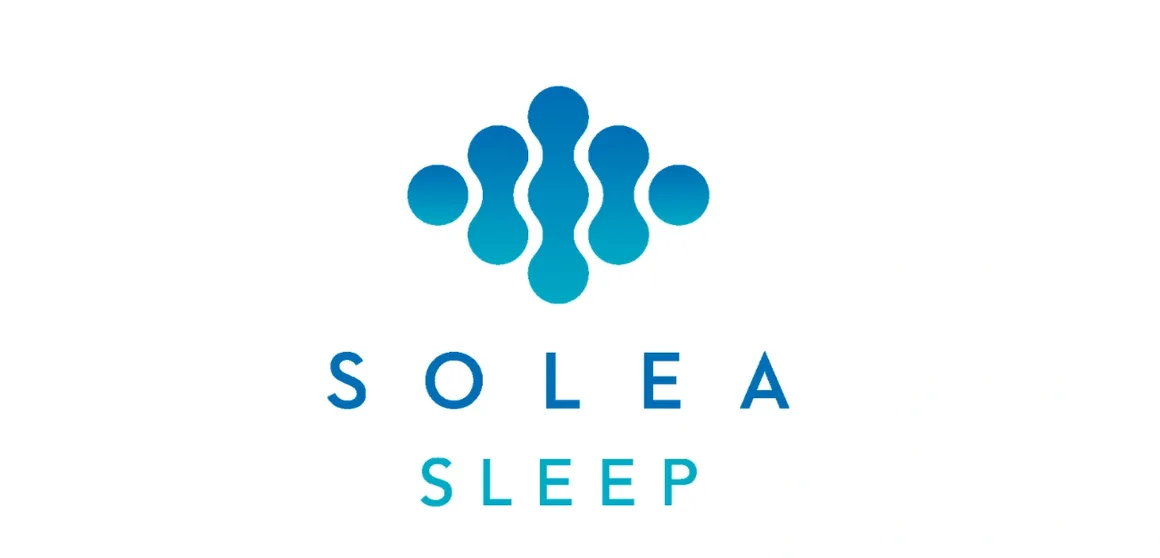Solea Sleep
benefits of solea sleep
significantly reduced or eliminated snoring
better quality, deeper sleep
eliminates morning sore throats and headaches
increased daytime energy and better mood
improved concentration, memory, learning
reduced effects of sleep apnea
How does solea sleep work?
About 80% of people who snore are “palatal” or mouth snores, which is snoring caused by the vibration of the soft palate tissue that has relaxed over time. A unique application of Solea’s specific wavelength allows the laser to tighten callogen fibers of the soft palate tissue gently and quickly in only one 5 minutes session. The tightened soft palate tissue opens the airway and reduces vibrations that cause patients to snore and disrupt sleep.
What is solea sleep?
Solea sleep is a simple to administer, low power application on the Solea all tissue dental laser that provides rapid relief for snoring by tightening the soft palate and reducing vibrations that cause patients to snore. Unlike other laser sleep treatments that require up to 4 sessions lasting 30 minutes each, Solea sleep is a single, non-surgical treatment that takes 5 minutes to administer with long lasting results.
Frequently asked questions
Is Solea Sleep Treatment Painful?
No. the majority of patients report not feeling anything during the Solea Sleep procedure, while some report only a slight warm sensation. Before the procedure we apply a topical anesthetic spray to the soft palate to eliminate any discomfort or potential gagging. After treatment you may experience some minor tissue soreness or irritation that lasts about 24 hours.
Does insurance cover Solea Sleep?
No, Both dental and medical insurance view Solea sleep as an "elective" procedure. However, you can use pre-tax dollars in your flexible spending account (FSA) or health savings account (HSA) toward Solea Sleep treatment.
How Long Does Solea Sleep Results Last?
Solea seep results lasts on average 12 to 15 months. As with any procedure involving the tightening of elastic tissue, results are not permanent as collagen in the tissue naturally relaxes or loosens over time. For consistent long term results we recommend that the Solea Sleep procedure be performed once a year.
Does Solea Sleep Treat Sleep Apnea?
No. Solea Sleep is not a treatment for obstructive sleep apnea (OSA), a serious health condition that involves partial or complete obstruction of the airway and reduced blood oxygenation levels. However, snoring is a major symptom in undiagnosed or diagnosed sleep apnea patients and Solea Sleep treatment can provide significant relief from snoring and improvements in their quality of sleep.
types of snoring and why they occur
Nose based snoring
Blocked nostrils as a result of a deviated septum or some physical obstruction in your nose may lead to blocking your airway, thus resulting in nasal snoring. Other causes include pet and dust allergies, nose stiffness, cold or if you are using certain types of medications. This kind of snoring can be treated in several ways depending on what causes it:
A deviated septum may require surgery to
Air purifiers would help reduce snoring resulting dust allergies.
Quitting smoking, nasal dilator strips, or a nasal rinse is effective against snoring due to cold or stiffness
Mouth Based Snoring
When a person breathes through the mouth instead of the nose while sleeping it results in mouth snoring, or “palatal fluttering.” This is the most common type of snoring, with 80% of snorers being mouth snorers. Blocked nasal passages, enlarged tonsils, or most commonly loose soft-palate tissue may be the causes behind mouth snoring. If you can’t breathe via your nose at night due to a blockage, it causes you to breathe through the mouth, resulting in a vibration of the soft-palate tissues, hence the snoring sound.
If loose soft-palate tissue is the cause then Solea Sleep is the most effective treatment that provides immediate relief in only 5 minutes by tightening the collagen fibers of the soft palate and opening the airway.
Throat Based Snoring
This kind of snoring is the loudest, and most dangerous of all. It is caused as a result of sleep apnea, a condition where the person stops breathing several times during the night in his sleep. And this condition occurs when the muscles and soft tissues in the throat area are too relaxed. They lead to a blockage in the walls of the throat, not allowing the air to pass through, thus resulting in tongue-based snoring or sleep apnea.
It occurs in every sleeping position, and can lead to diabetes, high blood pressure and stroke if left untreated. Sleep apnea needs medical attention right away, and the most common methods of treatment are CPAP therapy, UPAP therapy and UAS therapy.
Tongue Based Snoring
This type of snoring occurs because the tongue gets too relaxed, particularly when we lie down on our back, thus blocking the airflow into the lungs. As a result, it becomes difficult to breathe, thereby causing snoring. Tongue-based snoring may occur in people who love to drink alcohol or use sleep medication. Excessive fat around the neck may also be a cause of tongue based snoring.
Snoring mouthpieces or mandibular advancement devices are especially designed to be used as a remedy for tongue snorers. It helps move your jaws forward, thus preventing the tongue from blocking the back of your throat, and ensure uninterrupted breathing. Anti-snoring pillows and backpacks are useful ways of preventing this kind of snoring. They keep you on your side, preventing you from turning on your back, thus avoiding
difficulty in breathing.
Alternative Treatment Options to Solea Sleep
There are a number of treatment options available to treat snoring. One common alternative to treat palatal snoring is a mandibular advancement device, sometimes referred to as a snoreguard, that is worn during sleep to advance the jaw and open the airway. Treatment with Solea Sleep does not prevent future use of these devices if your snoring were to persist after treatment.
Other laser treatment options for snoring exist. One option called Nightlase uses a different type of laser than Solea, with energy being absorbed by the superficial layers of tissue. While treatment sessions take longer with this approach and multiple visits are required, patients report high levels of satisfaction with the procedure. Because of the additional time required, Nightlase typically is up to three times more expensive for patients than Solea Sleep.
For severe cases, surgical options exist where tissue is removed that is obstructing the airway. These procedures, called a uvulopalatopharyngoplasty or uvulopalatoplasty, have shown mixed clinical outcomes and can result in significant post-operative pain. These treatments would typically be performed by an ENT. Other approaches that may improve your snoring include cessation of alcohol and tobacco, as well as weight loss. Sleeping on your side instead of your back may also help.



